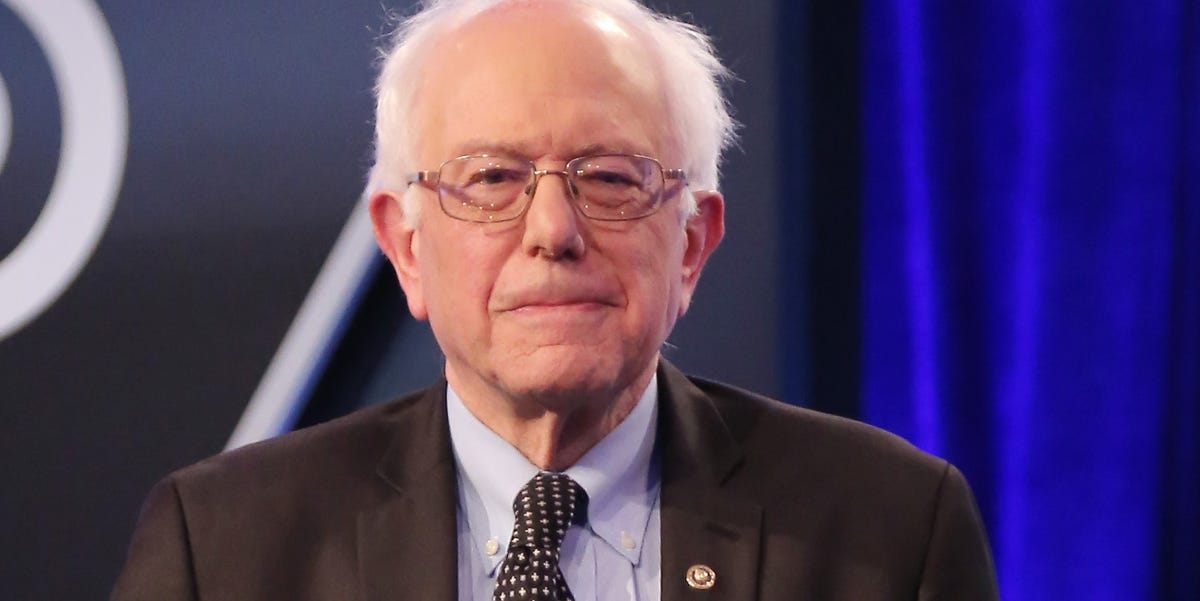

Bernie Sanders is running again.
For many, this is has come as welcome news—in the first 24 hours since his announcement, Sanders raised a whopping $6 million from 223,000 donors. But his run has also ignited the expected firestorm: for months already, speculation about Sanders’s potential campaign has even had progressives arguing that he should stay out of the race. The editorial board of The Barre Montpelier Times Argus, a paper in Sanders’ own home state of Vermont, literally begged him not to enter the race, and even some of his own 2016 campaign staffers were looking around for new candidates to support.
One of the big arguments against Sanders’s second run is that he’s simply too old—if he assumed the presidency in 2020, he’d be starting his first term at 79. For a party that depends on its young and diverse electorate, it’s completely understandable to think that Democrats might want to move on from electing more old, white men. And then there’s the fact that, as Jezebel’s Katie McDonough points out, he is just so easy to dislike. Sanders’s “white guy political myopia” feels like a constant uphill battle, one that has been put into even sharper relief in the years since the 2016 election when Donald Trump’s presidency has made it excruciatingly clear how intricately intertwined racism and sexism have always been with economic inequality.
Sanders, the logic goes, is drowning in a pool of his own making. Because of the impact of his 2016 run, which helped galvanize a national progressive movement, there are now so many other candidates jostling for the progressive frontrunner status that Sanders no longer stands out. “Much of his populist agenda has been embraced by other Democrats, at a time when many voters are eager to elevate female and nonwhite standard bearers,” The New York Times wrote of his announcement this week. Why vote for Sanders, many argue, when you could have a non-white, non-male standard-bearer instead?
But regardless of whether or not Sanders wins the primary, the idea that he shouldn’t run at all misses the point of having a primary in the first place: as the candidates make their cases for voters, his campaign will push the other Democratic Party candidates to embrace more progressive policies, same as he did in 2016. What’s the downside of that?
We’ve already seen how this works: thanks in large part to pressure from Sanders and movement activists, the Democratic platform under Hillary Clinton was celebrated as the most progressive in history. And, while the political landscape has shifted over the last four years, Sanders still remains the most progressive candidate. His biggest competition on that front comes from Warren, who has a long track record battling for issues of inequality and basic fairness. But her approach is more incremental and seeks to rein in the excesses of big banks and capitalist markets through reforms to those systems.
It’s true that a number of other 2020 candidates have signed onto big progressive policy ideas. Cory Booker, Kamala Harris, and Kirsten Gillibrand are all co-sponsors of Sanders’s Medicare-for-All bill; they are also all supporters of Alexandria Ocasio-Cortez and Senator Ed Markey’s Green New Deal resolution. Warren released a universal child care plan just earlier this week, while Gillibrand was one of the first to endorse a federal jobs guarantee.
But the specifics matter here. Where Warren has said that she is committed to the “idea” of a Green New Deal and Harris’s aides affirm that she is open to incremental steps to achieving universal healthcare, competition from Sanders, who has proposals on Medicare-for-All, breaking up big banks, and tuition-free college, will force candidates to specify and flesh out their progressive stances. Politics is a slippery operation and voters deserve precision. Climate change will certainly be one area where this pressure will happen—Sanders has already promised to roll out his own Green New Deal legislation that is expected to be significantly more detailed than the resolution that candidates have already endorsed. The same, of course, should be said for Sanders when he falls short.
None of this means that Sanders will win—or that he’s the candidate you need to vote for. But he is, thanks to millions of Americans who believe in his platform, a powerful force pushing the Democratic Party left. The idea that in four short years, we’ve moved past the need for a politician like Sanders on the national stage is, at the very least, short-sighted. Only four months ago, Democrats were downplaying their climate change agenda; only one year before that, the Democrats’ official response to the State of the Union failed to mention climate change even once. Just four years before that, Clinton was supporting the Keystone XL Pipeline, only changing her stance after Sanders made it an issue. Tackling this kind of large-scale, existential threat will require as many people continuously forcing it into the spotlight as possible. Sanders isn’t the only politician doing that, but he can play that role on a presidential stage.
With two years still left to go, the Democratic nomination is still anyone’s game. But Sanders’s entrance is sure to help the primary in one regard: making sure the candidate who does win ends up being as progressive as possible.
Be the first to comment